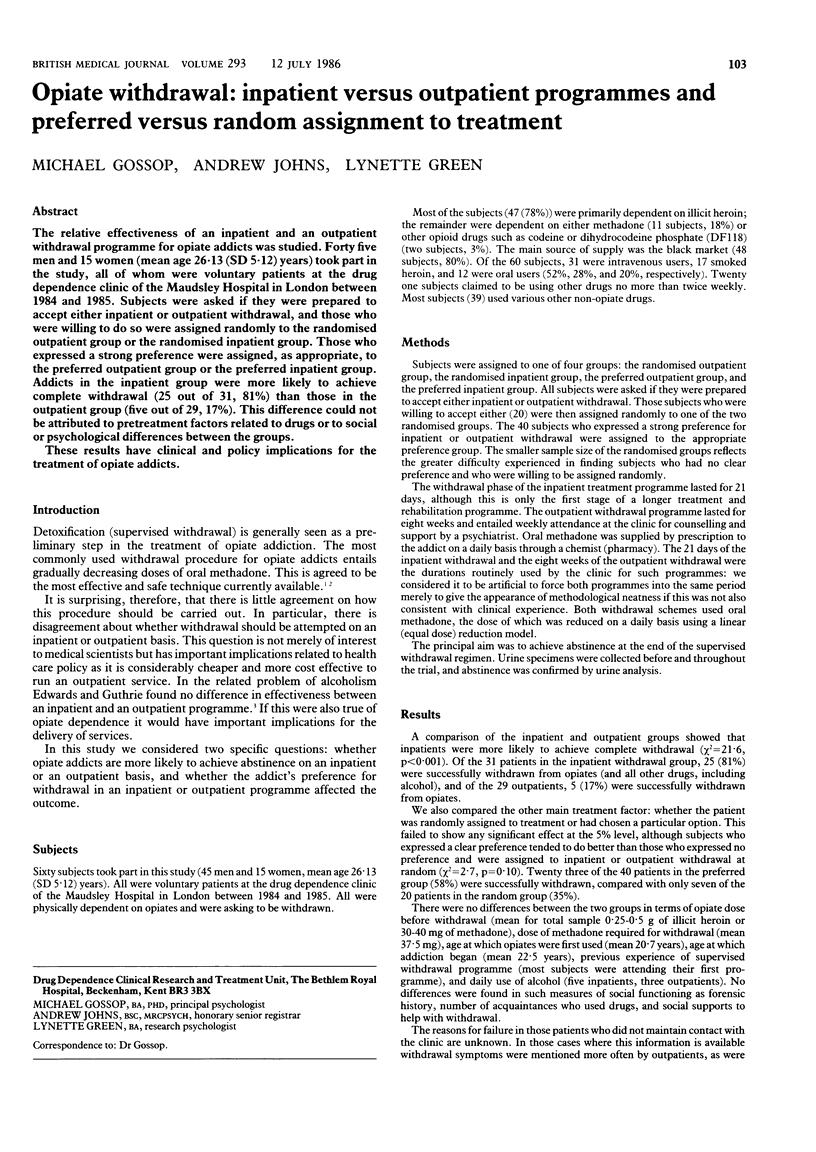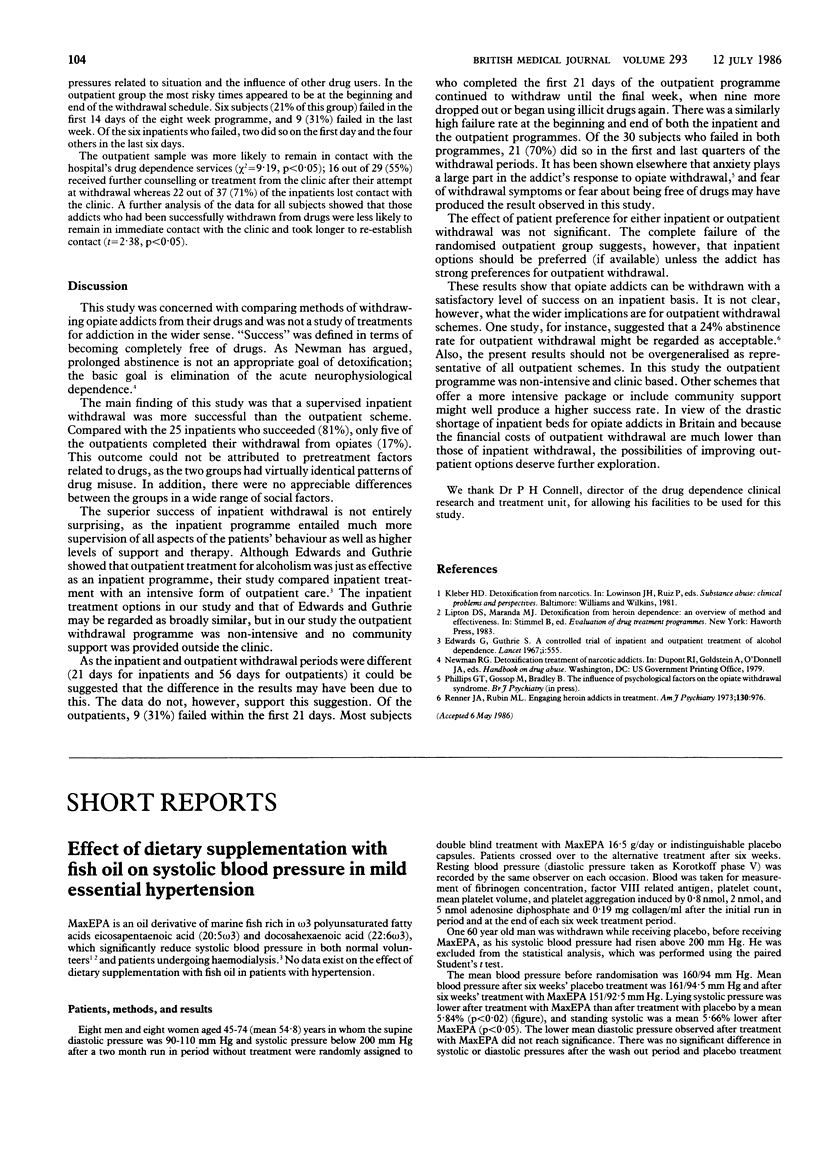Abstract
The relative effectiveness of an inpatient and an outpatient withdrawal programme for opiate addicts was studied. Forty five men and 15 women (mean age 26.13 (SD 5.12) years) took part in the study, all of whom were voluntary patients at the drug dependence clinic of the Maudsley Hospital in London between 1984 and 1985. Subjects were asked if they were prepared to accept either inpatient or outpatient withdrawal, and those who were willing to do so were assigned randomly to the randomised outpatient group or the randomised inpatient group. Those who expressed a strong preference were assigned, as appropriate, to the preferred outpatient group or the preferred inpatient group. Addicts in the inpatient group were more likely to achieve complete withdrawal (25 out of 31, 81%) than those in the outpatient group (five out of 29, 17%). This difference could not be attributed to pretreatment factors related to drugs or to social or psychological differences between the groups. These results have clinical and policy implications for the treatment of opiate addicts.
Full text
PDF

Selected References
These references are in PubMed. This may not be the complete list of references from this article.
- Edwards G., Guthrie S. A controlled trial of inpatient and outpatient treatment of alcohol dependency. Lancet. 1967 Mar 11;1(7489):555–559. doi: 10.1016/s0140-6736(67)92129-0. [DOI] [PubMed] [Google Scholar]


